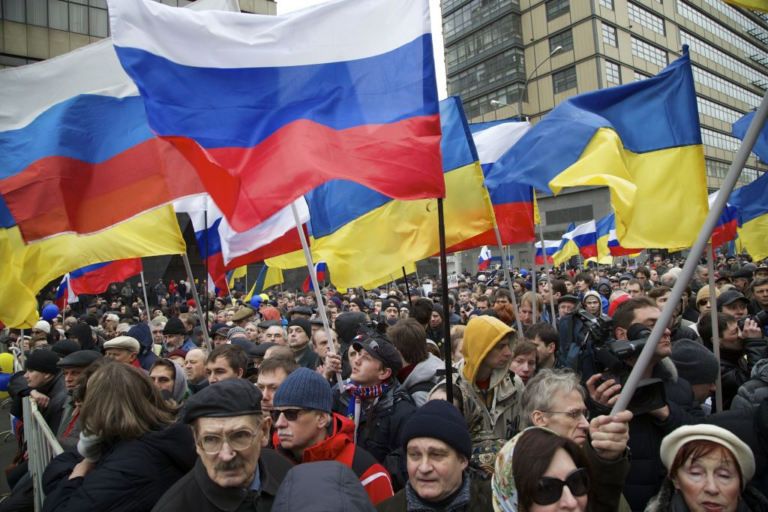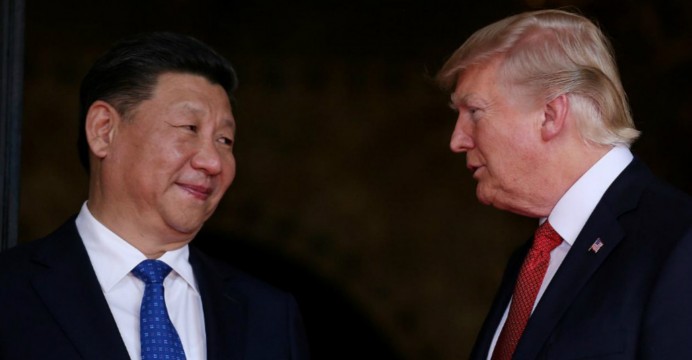
Photo courtesy of Saudi Press Agency via AP.
“The Nobel Peace Prize is a powerful message. A durable peace is not a single achievement, but an environment, a process and a commitment.”-Mohamed El-Baradei
The Nobel Peace Prize, a prestigious award that was established in 1901 to recognize outstanding contributions in peace, continues to carry a considerable symbolic meaning despite the number of questionable recipients, such as former U.S. President Barack Obama, Henry Kissinger, Le Duc Tho, Mikhail Gorbachev or the European Union. This year, the prize has been awarded to Abiy Ahmed, the Ethiopian Prime Minister who helped end his country’s 20-year war with Eritrea. Announcing the prize in Oslo, the Nobel Committee said Abiy’s “efforts deserve recognition and need encouragement”. Despite the Nobel Committee’s well-meaning intentions, I argue that awarding one of the most prestigious political awards to the young reformer Abiy is the wrong choice.
A former army intelligence officer turned politician, Abiy Ahmed took office in early 2018, becoming the Prime Minister of Africa’s second-most populous nation – Ethiopia. There should be no misunderstanding; since taking office, Abiy has pushed for reforms, the importance of which is impossible to overestimate. For example, under Abiy, the government pushed for a significant reform of its judicial and political system. His decision to release hundreds of political prisoners and journalists was highly praised both abroad and at home. Opening up media space was exactly what Ethiopia needed and I agree that we should applaud Abiy’s efforts to engender progressive development in the Ethiopian society. All of this indisputably deserves unqualified respect. However, it is important to note, that Abiy, was not awarded the Nobel Peace because of his reforms in the area of domestic politics but explicitly because of his work to facilitate peace with Ethiopia’s geopolitical rival and enemy – Eritrea. The two countries were involved in a war from 1998 to 2000, which led to over 100,000 deaths on both sides. In June 2018, Abiy and his Eritrean counterpart Afwerki announced the peace declaration that formally ended the conflict and agreed to open the borders between the two countries. Abiy and Afwerki made it possible for family members separated for two decades to embrace each other again. International community celebrated this moment as a historical moment for peace on the African continent.
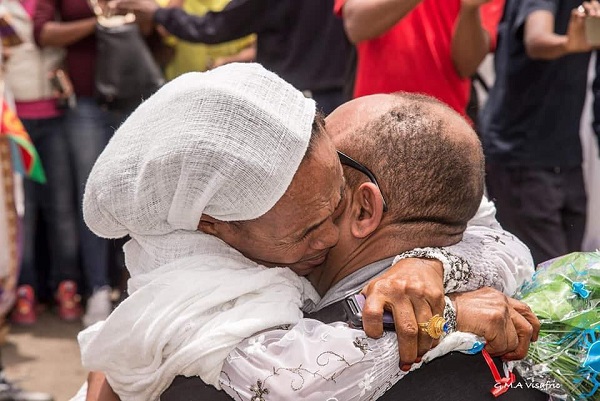
Image courtesy of The New Yorker.
Those peace efforts, however, have come to a standstill, and according to the latest reports have stopped completely. True, businesspeople and family members can still travel between two respective capitals, Addis Ababa and Asmara, via direct flights, but all land border crossings which are much more important for movement of goods and services between the local communities are completely closed again. Embassies have reduced their staff to a bare minimum and the bilateral diplomatic relations have deteriorated considerably. Worse, as Abebe Aynete, a senior researcher with the Ethiopian Foreign Relations, points out, both Eritrea and Ethiopia have, contrary to the clauses in the agreement, boosted their military presence along the border and have thus increased the possibility of violent conflict escalation. The initial shuttle diplomacy pursued by Abiy and Afewerki has come to a halt. The peace process has not been institutionalized and bilateral agreements regulating trade, tariffs, currency, citizenship and security have not been ratified. The Nobel Committee has praised Abiy for signing the peace agreement, however, the only legal document that has been signed so far is a non-ratified declaration of intent signed in Asmara, Eritrea in July 2018, which was later reaffirmed but not ratified in September 2018 in Jeddah, Saudi Arabia. Most Western media outlets have referred to these two declarations as the “Ethiopian-Eritrean peace agreement”, but the reality is the documents signed are just “joint declarations of friendship and peace” and are not binding legal documents. Presence of heavy artillery and military trucks on both sides of the border illustrate that, unlike what the Nobel Committee claims, there has actually been very little progress made so far to establish “friendship and peace”.
Essentially, Abiy has received the world’s most prestigious peace prize for a peace that exists solely on paper. This year’s peace prize to Abiy is highly reminiscent to the one given to former South Korean President Kim Dae-jung in 2000. President Dae-jung received the Nobel Peace Prize according to the Nobel Committee for “his amazing efforts to reunite the divided Korean nation”. As we know, North and South Korea, remain divided up to this day and one could argue that there has not been any significant progress in their peace negotiations. Just like in the case of South Korea, I am afraid that giving this award to only one side of the peace agreement, Ethiopia, could damage any hopes for future peace efforts. In particular, because the international community consistently refuses to acknowledge immense Eritrean efforts in these negotiations.
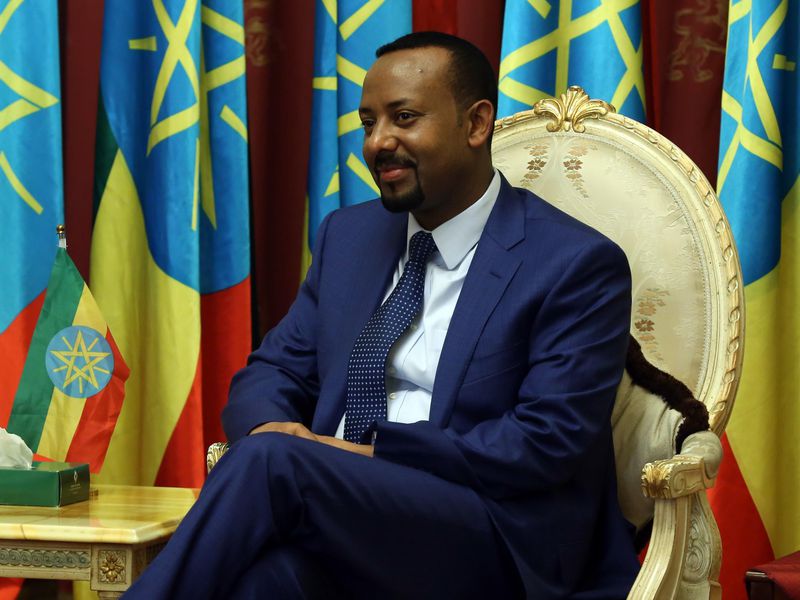
Image courtesy of Smithsonian Magazine.
These days, there is a lot of talk in Ethiopia and East Africa about “Medemer”, Abiy’s policy of reconciliation in the region. Just a day before he was awarded the Nobel Prize, Abiy invited the presidents and heads of states from all over the region to take part in a regional peace summit. Kenya, Somalia, Sudan, Uganda, Egypt and even Djibouti all sent their representatives while only one guest was absent. You’ve guessed it right. It was the President Afwerki of Eritrea who decided to boycott Abiy’s reconciliation summit and indicated in one of his interviews that peace is de facto “dead” for him.
As someone who is passionate about African politics, I must admit that I am a big fan of Abiy Ahmed. He is a next-generation politician who understands the importance of political stability in inducing economic growth and attracting greenfield foreign direct investments. Abiy is willing to go beyond the inter-ethnic disputes and centrally, he is able to comprehend that geopolitics is not a zero-sum game. However, I think that beside this important, but solely symbolic act of peace between Eritrea and Ethiopia, Abiy has not made an “outstanding and worthy contribution to world’s peace”, which is according to the Norwegian Nobel Committee a main criteria for receiving the Nobel Prize.
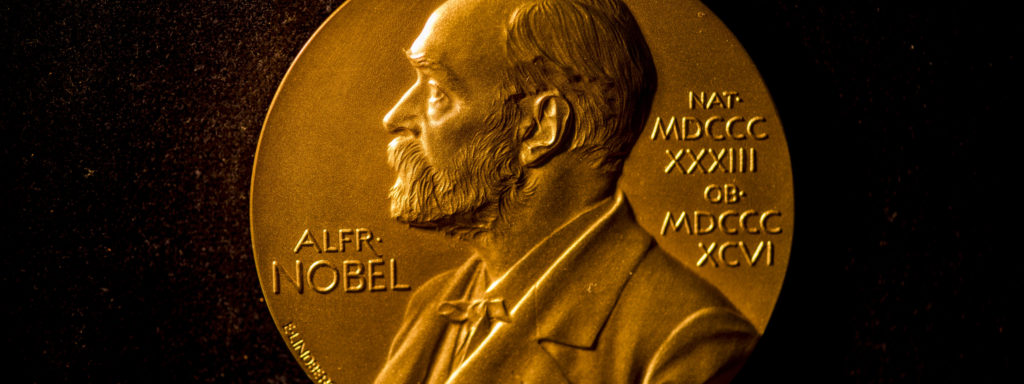
Image courtesy of The Nobel Prize Institute.
Ervin Smajič

